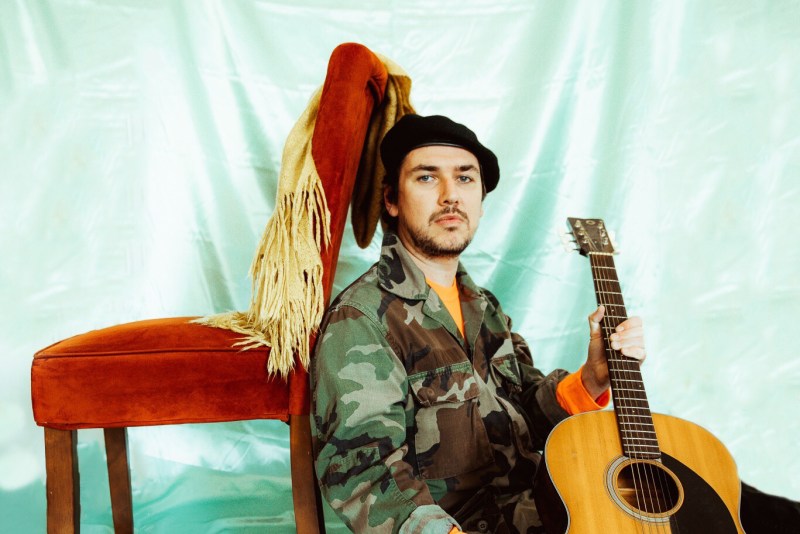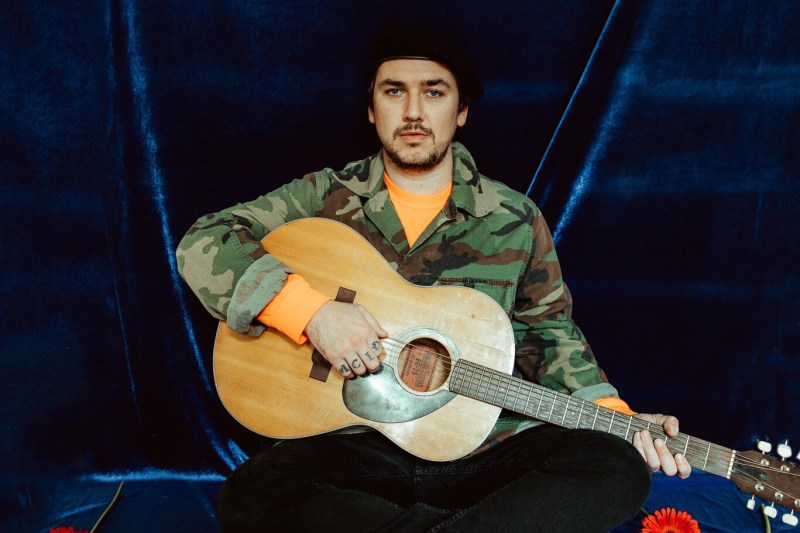
Justin Osborne has lost track of time. From his home in North Charleston, S.C., the 34-year-old musician and founder of the band Susto admits he forgot about the pre-arranged call. Right now he’s head-down, deep in the weeds, and has been for days now, he tells The Manual, remixing, remastering, and re-track-selecting his band’s third live record, Rogue Acoustic, which will be released June 4. There haven’t been complications; rather, there has been a re-understanding of the source material, seen more clearly after a 15-month hiatus. “There were reasons for making the album,” he says. “And then the events that happened after informed what it really means to me.
He continues, “Walking around listening to the mixes, I’m hearing the crowd more than anything — not because it’s so loud, but because it feels so foreign.”
In some ways, Acoustic is business as usual for Susto, which was founded by Osborne in 2013: A live record follows a studio album, and the band’s third live record follows 2019’s Ever Since I Lost My Mind, its third studio album. But the difference, as well of the source of his current re-focus and recapitulation of a record that was all but wrapped with a bow, is the effect of a worldwide pandemic that grounded his industry and changed his band’s future forever.
Related Guides
Acoustic was recorded in February 2020 as a means of recapturing lightning in a bottle. Osborne was inspired by a previous solo acoustic show in which he was set up with a picnic table for a stage and provided no amplification for his acoustic guitar or his voice. Oh, and he went on at midnight. Despite the odds stacked against him, “It was amazing,” he remembers. “It made me feel alive.” He wanted to reproduce that feeling, so he selected Charleston’s Royal American, a well-known stop on touring musicians’ itineraries and a place that he worked prior to Susto taking off full-time. He even selected a 12 a.m. start for the re-show out of superstition to reproduce the same conditions of the original event.
That night in February, Osborne played 23 songs on its tiny stage, including Susto songs both current and upcoming, with sit-in guests and a few covers. (Ben Bridwell, another South Carolina native and frontman of the rock band Band of Horses, appears on the performance of Hard Drugs, Acoustic’s first released track.) “Everybody’s drunk, you know?” Osborne says. “But at the same time, it’s what I wanted to capture: something raw.” With the record’s base material in the tank, the band departed on a two-week tour, a not-unusual occurrence for a group that spends 200 days a year on the road.
But a few days after their return home, the world closed, live music stages went dead for the next year, and Osborne forgot what it was like to play in front of a live audience.
When the initial shock of those first few months wore off and the U.S. collectively began peeking out its doors, Osborne returned to the digitally dusty tapes and found himself in shock: The sound of the audience was nearly all he heard, and it wasn’t just the mix. “A lot of it was them singing, but it’s also people having conversations,” he says, referring to its snapshot of normalcy rather than a New Normal. “After a few months, you stop remembering what it felt like to be in a place like that. Listening back, it hit differently.”

It was all he thought about in those summertime months of uncertainty, and after the project was pushed from the fall to spring ’21, it’s that same inspiration, of hearing an audience anew, that’s got him re-everything-ing to achieve the perfect mix to represent more than one night but one year of an industry’s loss. From the musicians themselves to the sound men and women, the bar staff, the light techs, the roadies, the venue owners and myriad other pieces in the machine, as well as the fans themselves, the reopening of live music has been a long time coming. And so he’s cocooned with his headphones, selecting nine tracks from the 23 he recorded the figurative day before the world changed, mixing them in remembrance of what once was and what may be again.
Osborne admits that Susto’s buildup over the preceding years helped it weather the storm better than others. Despite his small team and intimate band, they’d had payroll in place, so helping bandmates apply for unemployment was straightforward and no one went hungry. Furthermore, the Small Business Association’s Paycheck Protection Program also helped, allowing him to continue recording an upcoming studio record, which is expected in the fall or early 2022. “In the liner notes, I thank the government, because if it wasn’t for SBA loans, my new album wouldn’t have gotten made and I might have lost my sanity,” he says. “You’ve got to give credit where it’s due.”
If all of this sounds more accountant than rock band, Osborne admits that the year has been filled with as many adult conversations as artistic decisions. “Well, I’m 34, man!” he says. “They are all adult conversations.”
The real hard luck, he says, is not with bands as established as Susto but those a few years behind, who didn’t have the infrastructure in place to navigate governmental agencies and programs, and found themselves in the figurative wilderness.
“It took years and albums and lots of energy from all kinds of different people to build the band to the place where we were able to withstand what happened,” he says, in sympathy. “I recognize that.”
But with vaccination rates across the U.S. above 50 percent and relaxing regulations on bars and group gatherings coast to coast, normal is, if not back to full strength, at least headed in that direction. And so, with the release of the record, Osborne will embark on a Southeast tour, with stops in Nashville, Savannah, and Atlanta, among others, backed by his drummer and the musician Rose Hotel, who opens. Its stripped-down personnel echoes and complements the live record itself.
Following the Acoustic mini-tour, Osbourne will take a beat before returning to a wider tour with the full-band Susto in tow. But even with the seeming return to pre-pandemic life, Osborne, who is married with a one-year-old child, is confident that his career post-coronavirus will not be the same as it was before. Still, “I’m not in a big rush to get back at it,” he says.
“Taking 15 months off is a lot of time to think about the model we created,” Osborne continues. The days of being a road dog, he says, are over, and a re-evaluation of the time spent touring, his and his band’s quality of life, and, most importantly, balance, are at the forefront of his thoughts. “We will definitely be back on the road, but I’m never going to spend 200 days of the year again. I’m not doing it.
“Life’s short,” he says. “It’s too short to spend your life in a Pilot looking for unhealthy snacks.”



